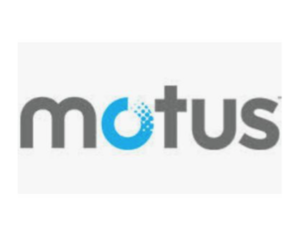
Understanding This New Watermark and How to Navigate Mileage Reimbursement Methods for Different Business Needs
The Internal Revenue Service (IRS) today announced the 2019 national business mileage rate of 58 cents. The IRS calculates the rate using data provided by Motus.[i] Based on a consistent method and statistical analysis of vehicle cost components from the prior year, the 2019 business mileage rate reflects an increase of 3.5 cents from the previous year and will go into effect January 1, 2019.
Specific trends factoring into the 2019 IRS business mileage rate increase include:
- A rise in insurance market rates
- An increase in labor costs due to the demand for more technical qualifications within the auto industry
- Significant increases in vehicle costs due to advanced electronic safety features (federally mandated to be included in all vehicles since May 2018)
- New model prices impacted by customer demand for information systems and other technology
The IRS rate offers a threshold that U.S. taxpayers and employers can use to calculate tax deductions for operating a personal vehicle for business purposes over the year. Although the IRS sets the rate, it is not a mandated or optimal reimbursement method for all drivers.
“As a business leader, I historically reimbursed my mobile employees using the IRS business mileage rate simply because I wasn’t aware that there were other reimbursement methodologies available,” said Craig Powell, CEO, Motus. “Now that I lead the company that helps businesses navigate the complexities around vehicle programs and properly reimburse their drivers what they are owed, I understand how important it is for companies to understand their options and when to deploy them according to their specific business needs. Few other business decisions offer such a short path to cost savings, risk reduction and a happier mobile workforce.”
While organizations are required to reimburse mobile workers for the business use of their personally-owned vehicles, whether or not the IRS rate is an optimal reimbursement method for doing so depends on the number of business miles driven during the year. Low-mileage drivers (<5,000 business miles per year) who drive for work occasionally but aren’t using their vehicles every day for business trips are typically prime candidates to use the IRS business mileage rate. To file these claims, employees need an IRS-compliant mileage log, but don’t need to submit justification beyond that – and mileage reimbursements can be paid 100% tax-free.
Since the IRS business mileage rate doesn’t account for variable driving costs (such as gas prices and insurance premiums) that can change in real time and based on geography, using it to reimburse mid- and high-mileage workers can cost businesses a lot of money when it comes to tax waste. For mid-mileage drivers (driving 5,000 – 20,000 business miles per year), employers can use more sophisticated IRS reimbursement practices – such as the fixed and variable rate (FAVR) methodology that is paid tax-free under IRS Revenue Procedure 2010-51 – to more accurately and fairly reimburse their employees for the exact cost of driving for work. For high-mileage workers (driving 20,000+ business miles per year), companies can use FAVR or offer a fleet vehicle program where they provide the vehicles and then charge employees for their personal use of that vehicle. For more information about mileage reimbursement and vehicle management options, please visit https://resources.motus.com/.
[i] Motus is the parent entity of Runzheimer International



